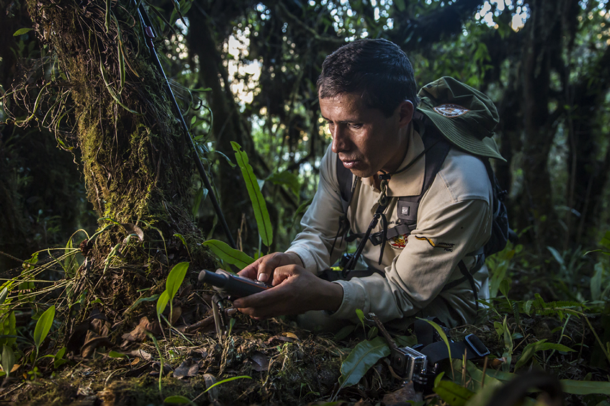Technology for Wildlife Surveillance Data Collection, Sharing and Management
Ranger using SMART cell-phone based technology
WCS
SMART for Health reporting and response cycle
WCS
WildHealthTech: WildHealthNet develops and employs innovative, appropriate, and user-friendly technologies for surveillance. With proven, globally distributed, open-source software (e.g., SMART for Health) and hardware like handheld cell phone devices for data collection and diagnostics, WildHealthNet supports effective and timely communication of data for improved reporting of wildlife health and rapid response.
- Cell-phone network accessibility and cell phone provision
- Human personnel to monitor network and data at the central level
- Access to a server
- Diagnostic capacity for safely testing wildlife samples for pathogens of concern (Point-of-care for some pathogens; in-country laboratories; regional laboratory networks, and agreements to support rapid and biosecure export, testing, and data sharing)
- Technical and analytical support
- Financing to enable technical support and capacity development for data platforms and data analysis
- Early detection of wildlife morbidity and mortality events facilitates a timely and appropriate response to disease threats; the inability to detect and identify the causes of mortality events is a major limitation in the protection of wildlife, livestock, and public health.
- Employing an already proven open-source and cell-phone-based technology through the Spatial Monitoring and Reporting Tool (SMART) platform used by rangers in close to 1,000 biodiverse sites across the world, leverages an unprecedented network of globally distributed boots-on-the-ground and eyes-in-the-field that can act as sentinels for unusual events in remote areas.
